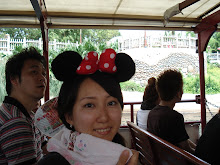Pick one other concept in the book that you feel needs further discussion? (You can choose from ANY chapter in the book).
The concept I want to discuss further is about interpersonal communication on chapter 6. I have an interest especially on public scrutiny test. It states,
1. Am I personally proud of this action?
2. Am I comfortable with this decision?
3. Would I feel uncomfortable or embarrassed if this decision were known to my colleagues, friends, spouse, or children?
I should write down these questions and put on a wall because I sometimes don’t have confidence on what I am doing.
However, I think people need some exceptions. For example, I have an experience taking a day off at my part-time job because I really wanted to go my friends’ farewell party. I should have scheduled my time in advance, but I called my job on that day and told them that I got sick. I knew this was irresponsible and I didn’t feel comfortable lying to my boss. On the other hand, I told myself, “It’s just a part-time job. There are other people working today so it’ll be ok”, and couldn’t give up going to the farewell party.
I wonder what you would do in a situation like this.
Final Post
17 年前
